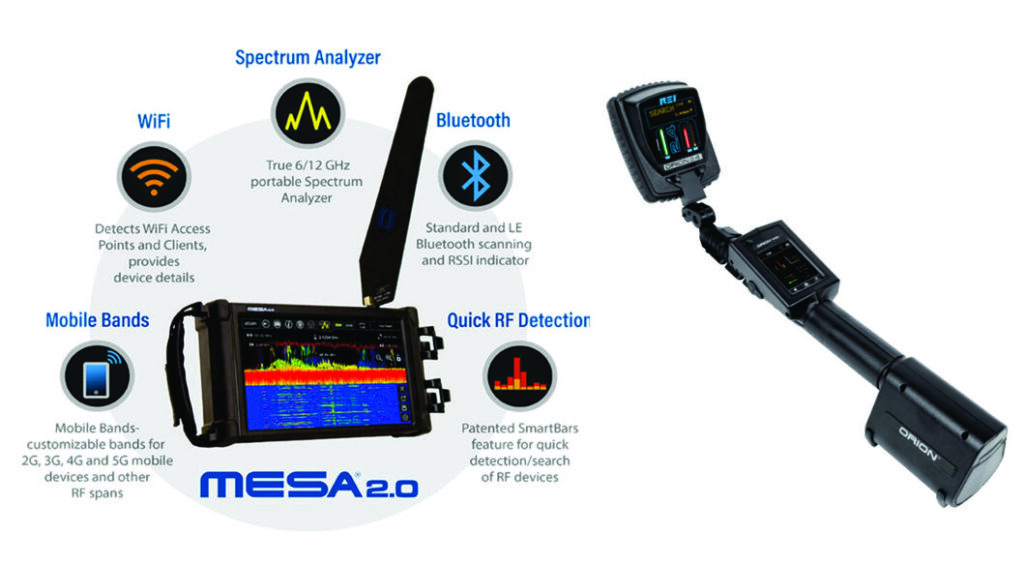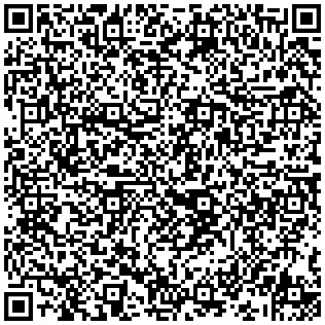We Are Southern California's Bug Sweeping Experts!
Bug Detection (TSCM) - Technical Surveillance Counter Measures

We detect electronic devices even if they are turned off and buried in a wall
Why Work With Us?
If you need help detecting and removing bugs from your home, we can help. We even detect electronic devices that are turned off and buried inside a wall. Unfortunately, most private investigators lack the skills and tools to conduct extensive investigations. Ask an investigator if they employ a Full Spectrum analyzer that goes up to 12 GHZ and a Non-Linear Junction Detector that can discover hidden devices even if they’re off. If they lack this equipment, you’re wasting money.
Has your home been bugged? Do you have complicated relationships with a business competitor or an ex-spouse? Do you often have important meetings in your home? If you suspect someone is eavesdropping on you, you may feel confused, panicked, or nervous to sleep alone. A thorough examination of your home may be wise. Follow this guide to decide how to determine if your home has been bugged. If you want more personalized advice, don’t hesitate to contact us.
Have You Been Bugged?
How do you determine if there’s a bug in your home, and why should you care? Here are a few instances where we recommend bug sweeping:
Others Know Your Secrets
Does it seem that others know your confidential business or professional trade secrets? This is the clearest sign of covert eavesdropping. Information theft is a multibillion-dollar underground industry in the US. Losing secrets is often subtle, so trust your instincts. When your competitors know private information—or when the media spills it—take this situation seriously to determine if your home is bugged.
Is the Bug on You?
Confidential meetings and bids are very popular targets for corporate spies. How would you like the plans for the corporate takeovers you’re planning to become public knowledge? Would copies of your product designs be of any use to your competitors? Would it be beneficial for your competitors to know how much you’re quoting for the same project?
Strange Phone Sounds or Volume Changes
An amateur eavesdropper causes noise when they employ a wiretap or similar listening device. Surveillance devices cause volume shifts and phone line dropouts. Professional eavesdroppers and their equipment don’t create such noises, therefore it could be an amateur. If you’ve noticed static, popping, or scratching on your phone lines, you should suspect a bug and react quickly. Avoid relaying sensitive info over the phone, even info that may not seem very confidential. When two conductors are linked, capacitive discharge occurs (such as a bug or wiretap on a phone line). This is a sign of an amateur eavesdropper or poorly trained spy. A TSCM expert should check your phone line or instrument to be sure.
If your phone is bugged, sounds can even come from your phone’s handset when it’s hung up. This is often caused by a hook switch bypass, which turns the telephone receiver into an eavesdropping microphone (and also a speaker). Most likely, someone could be listening to everything you say when you’re within 20 feet of the telephone.
No One on the Phone
Picture this: Your phone often rings and nobody is there, or a very faint tone, or high pitched squeal or beep is heard for a fraction of a second. This is an indicator of a slave device, or line extender being used on your phone line. This is also a key indicator of a harmonica bug, or infinity transmitter being used. Of course it may also be nothing more than a fax machine or modem calling the wrong number. A technical surveillance professional can evaluate your situation to make sure.
Your AM/FM Radio Suddenly Has Interference.
Many amateur and spy shop eavesdropping devices use frequencies within or just outside the FM radio band. These transmissions drift and will “quiet” an FM radio nearby. When bug sweeping, look for transmissions near the FM band’s endpoints and in quiet areas. Slowly move the radio around the room until the sound becomes high-pitched. Feedback detection or loop detection commonly finds bugs. Turning off the stereo function will increase the radio’s sensitivity. Immediately call a TSCM if you find a “squealer” in this way.
Your Car Radio Suddenly Starts “Getting Weird”
If you use your car radio often, you should know what it sounds like. What do you do if your car radio starts sounding “strange” all of a sudden? An eavesdropper may use your car radio’s antenna, which can interfere with reception (so be concerned if your automobile radio suddenly starts getting weird).
Your TV Experiences Interference
Radios aren’t the only devices that bugs may interfere with. TV broadcast frequencies can mask eavesdropping signals. However, these signals also interfere with TV reception (usually a UHF channel). TVs “suck in” a lot of RF energy and are sensitive to surrounding transmitters. This is called “Bandwidth,” and TV signals consume a lot of it). Small handheld TVs with folding antennas can scan a room. 2, 7, 13, 14, 50-60, and 66-68 are popular eavesdropping channels.
Someone Seems to Have Entered Your Home
Professional eavesdroppers often break into a target’s home or business and rarely leave obvious proof. It may seem that nothing is missing. A “less-than-professional spy” will dig through a target’s residence for hours, although rarely neatly. The most common “rummaging” targets are the backs of desk drawers and the bottom of a file.
A burglar’s redesigning habits might not stop there. Residents might notice that something in their home doesn’t seem right, such as rearranged furniture. Look out for electrical wall plates that appear to have been moved slightly or “jarred.”
Electrical outlets, switches, smoke alarms, and lighting fixtures are excellent places to hide eavesdropping devices. Remove the wall plates. When bug sweeping, look for debris under the outlet. Also, eavesdroppers may change power outlets and light switches. Note if someone repositioned any screws holding the wall plate.
You’ve Received Gifts from a Vendor
Be cautious of accepting gifts from salesmen. Imagine that one of your vendors just gave you any type of electronic device such as a desk radio, alarm clock, lamp, small TV, boom box, CD player, and so on. Many of these “gifts” are actually Trojan horses which contain eavesdropping devices. Be very suspicious of any kind of pen, marker, briefcase, calculator, “post-it” dispenser, power adapter, pager, cell phone, cordless phone, clock, radio, lamp, and so on that is given as a gift. That little gift the salesman left for you may be a serious hazard.
Items Have Been Tampered With or Added to Your Home
Take a careful look around your home. Do the smoke detector, clock, lamp, or exit sign in your office or house look crooked? Do they have holes in their surface? Do they seem more reflective than you remember? Items like these are common places to hide covert eavesdropping devices. When these devices are installed at a target location, they are rarely installed straight.
If you don’t live alone, it’s possible someone else has adjusted your house’s layout. Be sure to ask, but if no one you live with knows why furniture has been moved, this is cause for concern. Eavesdropping devices are often placed beneath or inside furniture (couch, chair, lamp, etc.) If you’re familiar with your home or office, you might notice even a fraction of an inch of furniture movement, so take advantage of your spatial awareness. Pay attention to furniture imprints on rugs and lamp shades. Eavesdroppers are frequently in a hurry and don’t put furniture back in the appropriate spot.
Also watch out for things like this that “just appear,” or when there is a slight change in their appearance. If certain types of items have “just appeared” in your office or home, but nobody seems to know how they got there, this is always a serious concern. Typical items to watch for and beware of are clocks, exit signs, sprinkler heads, radios, picture frames, and lamps.
Drywall Dust or Debris
If you see white dry-wall dust on your floor, this is definitely a cause for concern. This may signal that a pinhole microphone or video camera may have been installed nearby. It will appear as if someone has dropped a small amount of powdered sugar either on the floor, or on the wall.
You may find similar grit that has fallen from the ceiling tiles. Once you investigate, you may even notice that it seems your ceiling tiles have been cracked, chipped, gouged, drooping, or improperly fitted ceiling tiles may also be visible. This is a good clue that someone may have planted a covert video camera or eavesdropping device in your office or near your desk.
Check for ceiling cracks or chipping. Amateur and badly trained spies fracture acoustic tiles. Cracks, nicks, gouges, or stains should never be seen in executive areas. Damaged ceiling tiles should be replaced and the cause documented. In such circumstances, a TSCM specialist should investigate the area around the chipped, broken, or damaged tile for eavesdropping devices.
Suspicious Vehicles Nearby
If you notice “Phone Company” trucks and utility personnel near your home or office, stay alert. Seeing the same or similar vehicles more than three times may indicate a concern–at least according to the U.S. State Department training course on counter surveillance.
Vehicles with a ladder or pipe rack on the roof are often utilized as listening posts. Also, avoid cars with tinted windows or blind spots (like a service van). A Geo Tracker, Suburban, Blazer, Trooper, or Cargo Van could be a listening post vehicle. Look for cars with tinted windows or hidden back seats.
Keep in mind that the eavesdropper may move the vehicle, so glance around. Eavesdroppers usually stay within 500-750 feet of the target.
Suspicious Arrivals
Be wary of repairmen for telephone, cable, plumbing, or air conditioning showing up unannounced. Eavesdroppers often fake a utility outage to sneak into a facility and subsequently correct it. They install listening devices while repairing “the problem.” Power, AC, phone, and false fire alarms are common outages.
Your Door Locks Don’t “Feel Right”
If your door locks feel like they’re strangely sticky—or if they break when you use them—then someone may have lockpicked their way into your home. Lock picking, manipulation, or bypassing is a common sign that someone has snuck in and placed a bug in your private space. Stay safe and always use sidebar biaxial locks (such as ASSA or Medeco). Use double-sided deadbolts on all doors, window bars on all windows, and a door bar on all non-entry doors.
If you need a bug sweep in Los Angeles, Mr. Taylor has 24 years of TSCM experience and uses the latest high-tech equipment when bug sweeping. If you’ve experienced any of these scenarios, contact Allstate Private Investigations for a bug sweep in Los Angeles.


